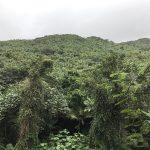- These are the products directly obtained from ecosystems, such as food, water, timber, fibres, and medicinal resources.
- For instance, forests provide wood and medicinal plants, while marine ecosystems offer fish and other seafood.
Regulating Services
- These include ecosystem processes that regulate essential conditions for life, such as climate regulation, water purification, flood control, and disease regulation.
- Wetlands, for example, filter pollutants from water, while forests act as carbon sinks, reducing the impact of climate change.
Cultural Services
- These are non-material benefits that people derive from ecosystems, including recreational, spiritual, and educational benefits.
- For example, national parks provide recreational spaces for tourism, which also supports mental health and well-being.
Supporting Services
- These are the foundational processes that allow ecosystems to function, like nutrient cycling, soil formation, and photosynthesis.
- Supporting services underpin all other ecosystem services by maintaining the conditions for life on Earth.


